Men, let’s talk about your health

HEALTH DECEMBER 2022 IOL

“When
you change your thoughts, remember to also change your world.”
- Norman Vincent Peale
•
IOL CONTACT US
PUBLISHER
Vasantha Angamuthu vasantha@africannewsagency.com
ACTING EXECUTIVE LIFESTYLE
EDITOR
Debashine Thangevelo debashine.thangevelo@inl.co.za
EDITORS
Marchelle Abrahams marchelle.abrahams@inl.co.za


Vuyile Madwantsi vuyile.madwantsi@inl.co.za
DESIGN
Juanita Minshull juanita.minshull@inl.co.za
PRODUCTION EDITOR
Renata Ford renata.ford@inl.co.za
BUSINESS DEVELOPMENT
Keshni Odayan keshni.odayan@inl.co.za
SALES
Charl Reineke charl.reineke@inl.co.za
ENQUIRIES
info@anapublishing.com
Cover Picture: SEAN WITTER/Pexels
THE festive season is upon us.
It’s that time of the year when we do everything in excessive amounts.
But there’s no excuse for not looking after your health, come the time to be jolly.
With November highlighting men’s health, we took the opportunity to spotlight issues men rarely talk about.

For instance, 65% of men acknowledged delaying going to the doctor as long as possible, and it all comes down to the superhero complex, an affliction most prevalent among men.
We’re also proud to feature men’s HIV coaching initiative Coach Mpilo, which works in communities to support HIV-positive men in taking control of their status and regaining a healthy, safe and meaningful life.
Not wishing to sound all doom and gloom, we’ve managed to sprinkle this edition with some light-hearted humour with our No Nut November piece.
Are you a fan of it? Have you tried it?
Editors’ notes Marchelle
All in all, we enjoyed putting this month’s read together. Hopefully, you’ll enjoy it as well.
IT’S BEEN an incredibly long year and by now everyone is looking forward to unwinding this festive season.
With that in mind, we would like to dedicate this month’s IOL Health digital magazine to Movember, also known as “No Shave November”.
We wanted to shed light on a range of issues other than just cosmetic challenges, like raising awareness about men’s health issues, including cancer, and demystifying their health.
We hope you enjoy it, and happy holidays in advance!
The Superhero Complex • No-nut November
• Confronting men’s mental health issues
• Diabetes myth-busters
• Multiple myeloma
CONTENTS
• Men and menopause
SIKKEM Unsplash
KELLY
Vuyile
Don’t be afraid to ask for help even if you have a SUPERHERO COMPLEX
THE “Superhero Complex” and how it affects our daily lives should be better understood, according to Sanlam’s Dr Calvin Yagan, in honour of Men’s Health Awareness Month in November.
The Superhero Complex is a recognised psychological state where a person believes they cannot fail and that they have to “fix” everyone else’s problems.
It happens when someone thinks they are limitless, incapable of being exhausted by anything, and usually have no boundaries. This can manifest in several ways, such as refusing to ask for help out of fear of being judged or appearing incompetent, which
Vuyile Madwantsi
usually leads to bigger issues than what was initially the case.
While not specific to men, the superhero complex contributes significantly to the refusal of many men to get routine medical check-ups. The hero cannot initiate change in the world without a change in himself. Hence, why it’s important to realise that without prioritising your own care, you cannot continue taking care of others indefinitely.
Dr Yagan explained the Superhero Complex is a clinical syndrome defined by the desire or pressure to
be perfect. According to him, the pressure to succeed is largely selfimposed and frequently leads to emotions of anxiety and stress that can affect the mind and the body.
There is a long-standing stereotype that men tend to avoid going to the doctor. In fact, a survey conducted by the Cleveland Clinic found that 65% of men acknowledged delaying going to the doctor as long as possible. It also found three out of five males had annual physicals, and that nearly half indicated they simply avoid talking about their health.
The importance of a check-up is that it can detect any underlying

THERAPY can be beneficial. | COTTONBRO STUDIO Pexels
problems before they become symptoms, which is one of the most important reasons to get one. Early detection of conditions can lead to more effective treatment.
The Centres for Disease Control and Prevention (CDC) data confirmed women were 33% more likely to visit a doctor, and 100% more likely to maintain screening and preventative care.
According to Sanlam Individual Life’s 2021 claims statistics, in South Africa, 25% of all severe illness cancer claims paid for by men were for prostate cancer. The 2019 National Cancer Registry research indicates the risk for aggressive prostate cancer is higher in black men.
Prostate cancer can be identified early using simple screening procedures. Including Prostate Specific Antigen (PSA) blood testing and traditional digital rectal examination (DRE)
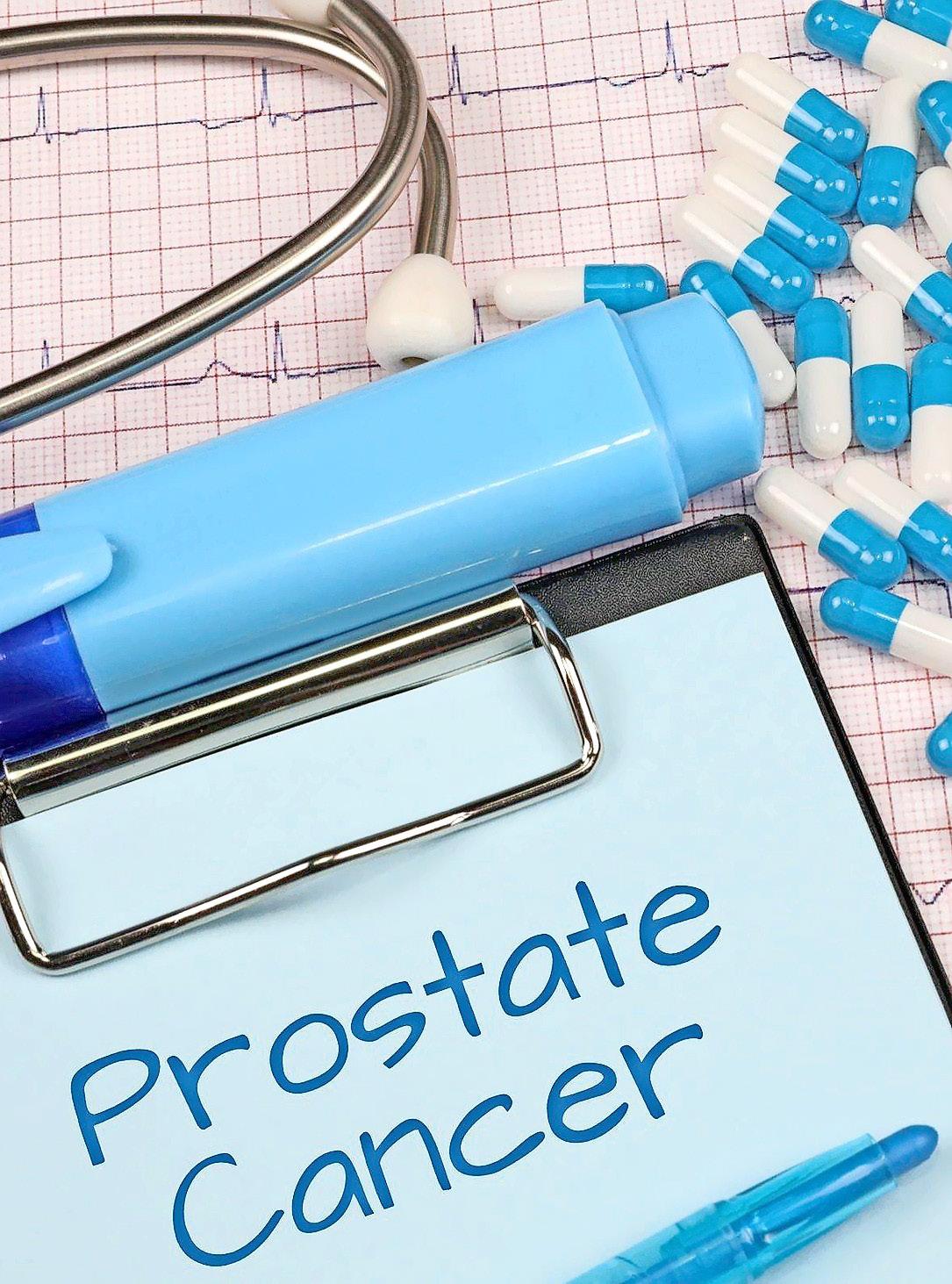
In 2021, Sanlam’s severe illness claims by men included heart attacks (14%), coronary artery bypass grafts (10%), and strokes (8%).
In South Africa, cardiovascular disease is the primary cause of one in six deaths. Despite the alarming numbers, it is simple to identify and manage the risk factors for cardiovascular disease. Heart disease and stroke risk can be considerably reduced by early detection of risk factors such as hypertension, obesity, sedentary lifestyle, cigarette use, diabetes, and high cholesterol. Regular medical check-ups and health screening initiatives mean these risk factors are identified and treated early.
Many superheroes, both reallife ones and the ones we see on television, are prone to mental and emotional health problems. Many men are reluctant to seek help for depression and anxiety because of social stigma that contributes to self-stigma.
Men can exhibit vulnerability without fear of being rejected
or judged by others when they demonstrate empathy, according to Nozibusiso Nyawose, clinical psychologist and CEO of Psych Consultancy.
Nyawose advised teaching your children to be aware of changes to their bodies and any emotional challenges.
She suggested parents encourage kids to ask questions when they see a doctor or dentist because doing so encourages them to take care of their physical and mental health. She added that children are very
perceptive, “when you seek medical help, your behaviour inadvertently gives them permission to do the same”.
Dr Yagan argued topics like anxiety and depression must be demystified through education and communication.
“Gen Z could be the moldbreakers who challenge and re-imagine the stereotypical male. These young adults have the social and political support to be agile and inclusive in their thinking and actions,” he said.
ACCORDING to Sanlam Individual Life’s 2021 claims statistics, in South Africa, 25% of all severe illness cancer claims paid for by men were for prostate cancer. | PIX4FREE
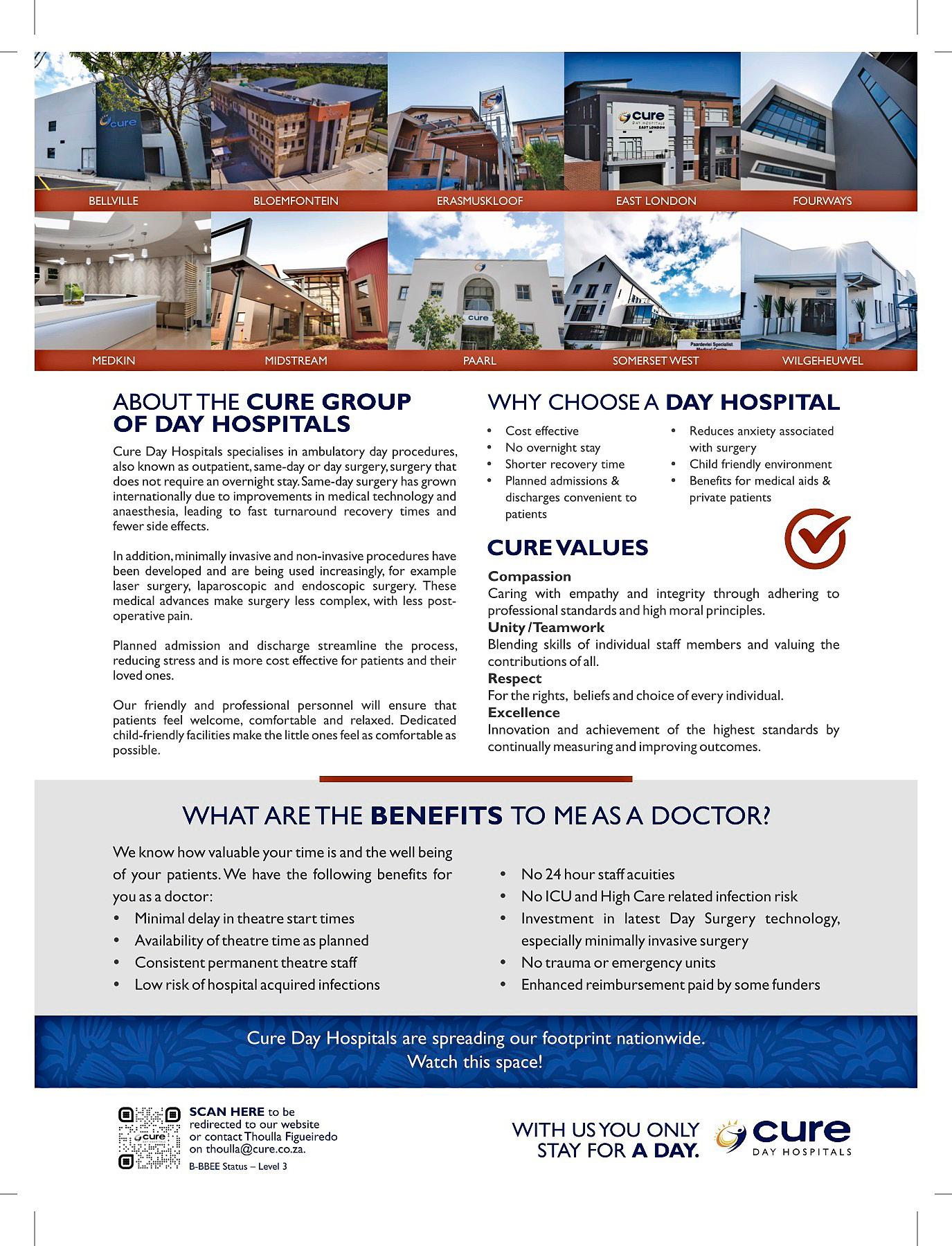
No-nut November
LEBOHANG MOSIA
MASTURBATION has been demonstrated to relax muscles, promote sleep, release endorphins, lessen tension, and aid in understanding one’s own sexual reactions.
Additionally, there is certainly no chance of STIs or pregnancy. So why would someone decide to forego masturbating for such a long time?
The origin of “No Nut November”, as it is often known, may be attributed to a chance article in the Urban Dictionary in 2011. Over time, it acquired popularity on Twitter, Reddit, 4chan and TikTok.
Now, it’s been appropriated by some well-intentioned organisations fighting porn addiction, like NoFap, and other far-right organisations that demand total abstinence from
masturbation.
But in essence, No Nut November refers to a task someone has set for themselves to refrain from masturbating for the entire month of November. Despite the fact that mostly guys participate, everyone is welcome.
As seen on the No Nut November subreddit, it’s for folks “who find it impossible to spend even a few days without playing tug of war with the cyclops” to try to “go the entire month without making the bald guy cry”. It’s as arbitrary as trends like “No Shave November”.
However, there are some misconceptions, particularly about men’s self-control, that still remain.
The term “energetic suicide” refers to the reduction of jing, or sexual energy, each time a person ejaculates. And among some contemporary Taoist practitioners, the notion that when you cum,
you’re essentially haemorrhaging life force is still present.
Such statements are supported by anecdotes rather than scientific evidence.
As per Dr Lauren Rosewarne, senior lecturer at the School of Social and Political Sciences at the University of Melbourne, the No Nut message isn’t fully healthy and men need to masturbate for health reasons, including “to clear up the prostate”.

Rosewarne noted that there are still competing schools of thought on pre-sportsturbation, even within the sporting community, but the research seems to indicate that masturbating has no effect on testosterone levels.
Every form of sexual abstinence will always have a puritanical tone. For both men and women, at least up until recently, masturbating has been considered very taboo, according to clinical psychologist and sex therapist Gemma Cribb.
Society picks up the shame, but it can be unlearned.
According to Rosewarne, “If you are someone who has had a court order to stop masturbating, that’s a different matter”.
We can go nuts, literally, because the majority of us don’t actually do it in unsafe or unlawful environments.
Essentially, refraining from masturbation for an extended period has no discernible medical benefits for either men or women.
IN No Nut November, there’s a recurring joke about how, once you get to a certain point, you’ll be able to levitate and develop psychic abilities.
| UNSPLASH
Finally, we advise you to exercise body autonomy and to behave as you wish. However, you should think twice before participating in No Nut November.
Are there any advantages to abstaining from masturbation for a month?
SUICIDE rates indicate that millions of silent sufferers are men. | FREEPIK

CONFRONT MENTAL
HEALTH ISSUES MEN FACE
It comes as no shock that mental health issues are escalating amongst South Africans
Vuyile Madwantsi
IN 2019, the World Health Organization published their Global Health Estimates Suicide.
According to the report, 13 774 suicides were reported in South Africa in 2019. Men accounted for 10 861 of the deaths, women for 2 913. According to the report, South Africa has the third-highest suicide rate of any African country.
It comes as no shock that mental health issues are escalating as South Africans deal with an ongoing pandemic, record-high levels of unemployment, and continuous economic stagnation.
According to Dr Mike Marshall, executive manager, Research and Product Development at the AfroCentric Group, South Africans are some of the most stressed people in the world and mental health is sadly not prioritised by too many, especially men.
Marshall is concerned that medical aid data claims showed mental health issues are on the rise, but this is primarily due to an increase in depression claims by women rather than men. Given that statistics show far more men die by suicide, “we have to assume men are suffering as well but just don’t want to admit it,” he said.
“This tragic statistic paints an unfortunate truth on the face of our nation – men are struggling but would rather take their own lives than admit they need help. We have to start confronting male mental health before more men end up taking their own lives.”
Medscheme has launched a mental health resource hub – an online source of information surrounding mental health issues. A screening tool that gives the general public a quick window into their mental health and helps them understand at which point they should seek professional help.
Understanding how to categorise the issue, or at the least knowing others are struggling with the same issues, will lead a person to the
next step in the healing journey. Marshall believes three steps must be taken to address this issue: Educate yourself
“By educating our members and giving them access to a simple and effective instrument that serves as a basic evaluation of their mental health condition, we can put them on the right course to therapy before they are admitted to the hospital and incur financial costs,” he says.
“This is also for men who need support but wish to keep it discreet.”
Acceptance is the first step to treatment
South Africans need to start acknowledging the hidden crisis that is mental health issues. What can we do to help our men open up and realise mental health needs to be treated like any ailment?
“Mental health is not a sign of weakness, but far too many South Africans are embarrassed to speak up and seek help.”
One of the most important ways we can address mental health is to focus on the issue of acceptance.
When it comes to this country’s various health burdens, stigma has become a trend in many parts of, particularly among men.
Engage with our communities
“If we can engage with our men and our communities about the prevalence and dangers of mental health issues, then we can finally identify and treat the millions who are suffering in silence,” said Marshall.
The AfroCentric Group offers several platforms to support the mental wellness of not only its scheme members, but also the general public.
For its members, it has partnered with the Panda app, which provides access to support and resources to get people the right care at the right time.
The AfroCentric Group offers the app through its own lifestyle wellness app, AMP, which is designed to help members make better lifestyle choices, ultimately reducing the need for costly healthcare interventions.

For the general public, it has launched Medscheme Mental Wellness Learning Solutions, a resource hub that provides credible mental health information to guide those in need of assistance to the necessary support channels should they need to speak to someone.
“I urge men, in particular, to not suffer in silence,” Marshall says. “Find someone you can talk to or engage with our platforms to get on the road to mental wellness.”
PARTICIPANTS in the KZN Mental Health Advocacy Walk at Durban’s North Beach. | SUPPLIED
JO SONN Unsplash
Ten myth-busting questions about DIABETES AND FOOD
ACCORDING to the International Diabetes Federation, South Africa has the highest prevalence of diabetes in Africa at 11.3% of our population.
More than 13 million South Africans have impaired fasting glucose which puts them at high risk of developing Type 2 diabetes.
In honour of Diabetes Awareness Month, the ADSA presented a group of registered dietitians with 10 myth-busting questions on diabetes and food:
1. Do people with diabetes need to eat special foods formulated for them or follow a special diet?
Ria Catsicas: The answer is no. This implies those who have
Vuyile Madwantsi
diabetes have the same variety of food options as everyone else. There is no need to purchase pricey or specialty meals marked for diabetics. Whole grains, fresh produce, dry beans, legumes, and pulses can all be found in any grocery store.
2. Do people with diabetes have to avoid eating fruits?
Ria Catsicas: No, people with diabetes do not have to avoid fruit. It is the amount of fruit you eat that matters and it is best to get your dietitian to check how much fruit you can consume as this is an individual recommendation.

Ria Catsicas: Starchy foods are not “the enemy of people with diabetes”. The type and quantity of carbohydrates consumed affect blood sugar levels. Refined, ultraprocessed carbohydrates should be avoided. Foods such as slap chips, ice creams, and fizzy drinks to name a few. Instead, consume more high-fibre breakfast cereals, brown rice; baby potatoes and sweet potatoes with skins on, etc.
4. Does having diabetes mean I will never eat sweet things again?
Nasreen Jaffer: It is untrue that someone with diabetes will never
3. Is it true if you have diabetes, carbohydrates are ‘the enemy’?
PEOPLE with diabetes do not have to avoid fruit. |
be able to consume sweets again. What matters more is how much and how frequently these items are consumed, as well as ensuring that each food group is represented in a meal or snack. A dietitian can advise diabetics on how to include some snacks while still controlling their blood sugar levels, provided that they do so moderately.
5. Is it true Type 2 diabetes is a mild form of diabetes?
Ria Catsicas: The idea that type 1 diabetes is more serious than type 2 diabetes is simply a myth. The only difference is in how the types of diabetes develop. Due to an autoimmune condition, Type 1 diabetes typically develops in younger people in a short period, and those who have it are entirely dependent on insulin injections. And type 2 diabetes develops in adults over a long time due to factors like genetic predispositions, abdominal obesity, poor diet, inactivity, and stress.
Some people with Type 2 diabetes also use insulin while others use alternative medicine. Both types are treated using a variety of medications including injections. The worst type of diabetes is untested, undiagnosed, or uncontrolled. This can lead to health complications including blindness, loss of limbs, and death.
6. Does Type 2 diabetes only affect overweight people?
Nasreen Jaffer: Type 2 diabetes affects people of all weights. However, because they create insulin resistance, being overweight and obese are the main risk factors for developing the disease. Consequently, keeping a healthy weight is crucial for managing diabetes and can delay the beginning of the disease.
7. Are all people with diabetes at risk of losing their legs, or of going blind?
Nasreen Jaffer: These complications set in when the blood sugar levels are not maintained within the targeted levels over an extended time. This
is why it is so important to be tested, and if diagnosed, to follow recommended treatment. The onset of complications can be delayed or avoided by maintaining optimal blood glucose control through medical treatment, diet, and physical activity.
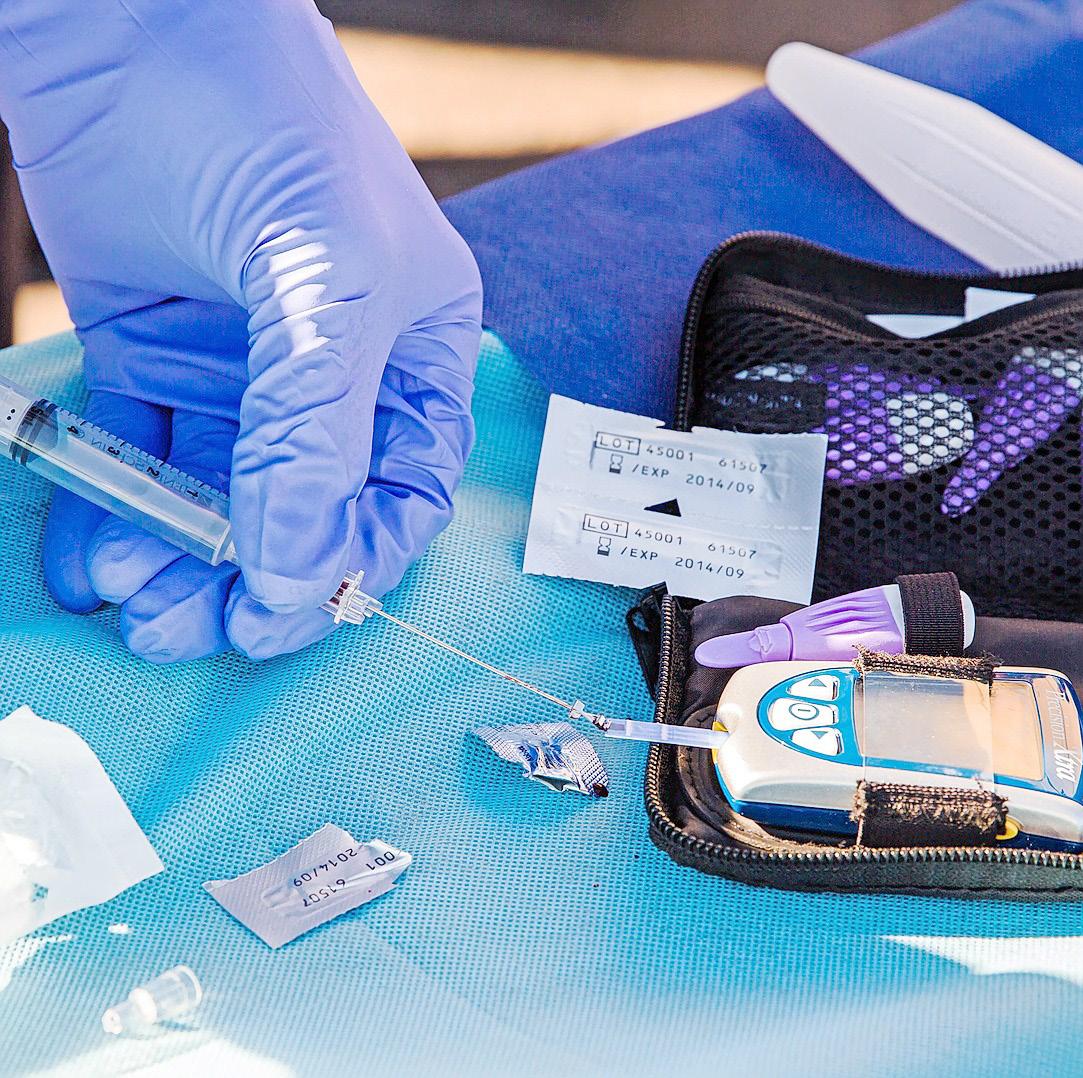
8. Should people with diabetes avoid physical activity?
Kgadi Moabelo: People with diabetes should not avoid physical activity unless they are specifically advised by their doctors. Each individual living with diabetes should be aware of their unique glucose response to exercise, and tailor their activities accordingly. Physical activity improves insulin sensitivity and supports the control of blood sugar levels. It also helps control weight, protects against nerve damage, and can delay the progression of diabetes complications. The general guideline is 150 minutes of
moderate-intensity exercise weekly, such as walking and cycling.
9. Are there any natural products that can cure diabetes or support health for people with diabetes?
Kgadi Moabelo: No plants or medicine can cure diabetes. Over 800 plant species may have positive impacts on blood sugar levels, however, it’s critical to highlight that further research is required to establish critical elements like safe dosage and administration. Natural does not equate to safe, as the same plants can be deadly if used improperly or in a different way.
10. If a person with diabetes adheres to their medication, can they eat anything they like?
Kgadi Moabelo: It is crucial for any person living with diabetes to eat a healthy diet even when their blood sugar level is controlled. Moreover, maintaining a healthy body weight is of great importance.
SOME people with Type 2 diabetes also use insulin while others use alternative medicine. | MATT C Unsplash
THE LOWDOWN ON MULTIPLE MYELOMA
Since the proliferation of uncontrolled cancer cells causes multiple myeloma, it is the only type of cancer referred to as multiple
Vuyile Madwantsi
AGE, ethnicity and gender are contributing factors. It’s advised to have a check-up just to detect any abnormal signals as early as possible.
 | ANGIOLA HARRY Unsplash
| ANGIOLA HARRY Unsplash
THE director of medical affairs at Janssen South Africa, Moustafa Kamel, has reaffirmed how technology significantly improved the way diseases like cancer are treated.
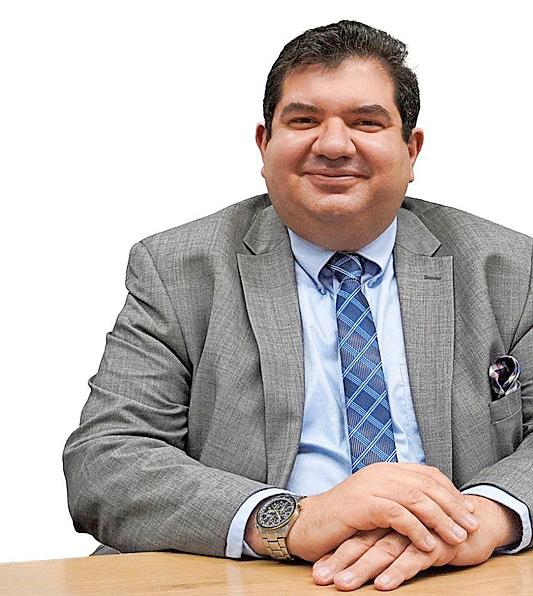
If the disease is detected early enough, it may be managed as a chronic illness rather than a potentially fatal situation, he told IOL lifestyle.
Since the proliferation of uncontrolled cancer cells causes multiple myeloma, it is the only type of cancer referred to as multiple.
When the cancerous cells invade the bone marrow, they leave no room and crowd out healthy cells responsible for producing red blood cells, white blood cells, and platelets as their primary function.
Multiple myeloma is caused by an excess of plasma cells in the bone marrow disrupting the production of red and white blood cells as well as platelets, resulting in patients being anaemic, infections, and no clotting agents in the blood, explains Kamel.
Patients had two options up until recently: chemotherapy or bone marrow transplantation. Targeted therapy, recently made available for patients with multiple myeloma, is far safer and relies on a different treatment regime.
Targeted therapy focuses on
the proteins that regulate the development, division, and spread of cancer cells.
Targeted therapy only treats the area that needs it, puts cancer in remission, and, should a relapse occur, introduces a new treatment plan.
Kamel further said that this emerging form of treatment allows for long-term management of the problem rather than more extensive therapies like chemotherapy.
People diagnosed with multiple myeloma are typically between the ages of 66 and 70. Medical professionals have identified certain mutations of multiple myeloma as genetic risk factors.
“It could be classified as a rare disease because it relatively affects 1% of the South African population. Men are slightly more likely than women to develop multiple myeloma,” he said.
“Additionally, ageing, ethnicity and gender are also contributing factors. Every six months it’s advised to have a check-up, just to detect any abnormal signals as early as possible.”
While multiple myeloma is less common than leukaemia and lymphoma, advances in cancer management represent a significant advancement in science and, more importantly, patient care. As recently as 2020, approximately 176 404 people worldwide were diagnosed with multiple myeloma.

Several studies have shown a link between alcohol use and an increased risk of cancer, including breast, colon, and liver cancer.
Alcohol is a proven carcinogen (a substance that causes cancer), and drinking alcohol may increase your chance of developing a variety of cancers. Therefore, it may be beneficial to rethink your lifestyle choices to avoid the development therapy has the potential to save a lot of lives,” Kamel said.
When diagnosed early, the fiveyear survival rate for patients with multiple myeloma is estimated to be around 77%.
“There is a significant amount of research under way to understand cancer better and, concomitant to that, our DNA and how genetic mutations that cause the condition originate. As we hone in on the various aspects of cancer and isolate cause and effect, treatment can become even more targeted and effective. That is what we hope for every day.”
THE director of medical affairs at Janssen South Africa, Moustafa Kamel.
| SUPPLIED
STUDIES have shown a link between alcohol and an increased risk of cancer.
| SERGIO ALVES SANTOS Unsplash

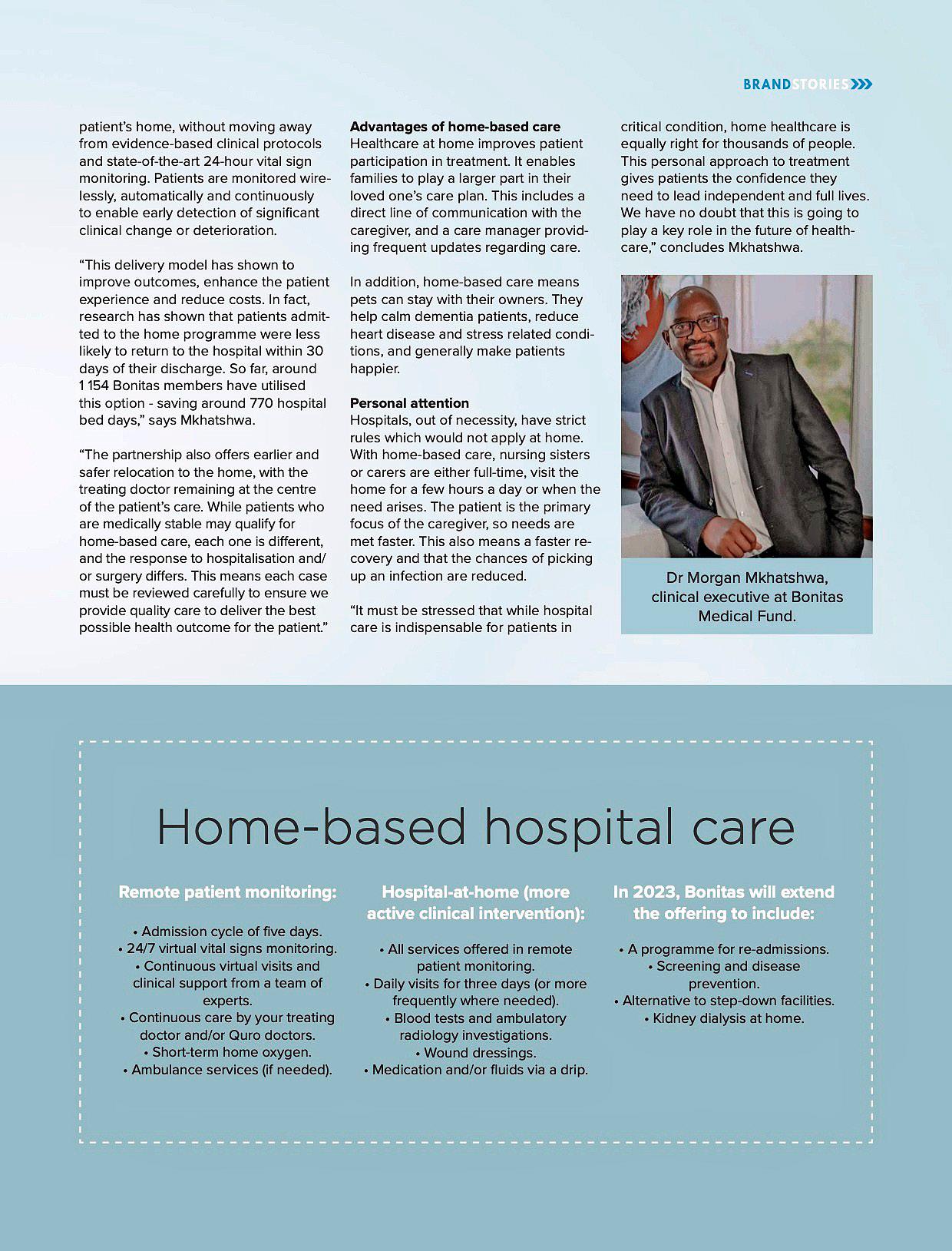
Should we be eating a blood type-based diet?
FOR a while, people believed a diet should depend on your blood type.
A scientific study published in the Journal of Nutrition Dietetics found persons with blood type A had a higher chance of developing heart disease, whereas people with blood type O have a lower risk.
According to naturopathic physician, Dr Peter D’Adamo, eating foods appropriate for your blood type will improve your health. Additionally, he believes you will be less prone to develop
health issues or store the food as fat.
Bianca Tromp, dietitian for FUTURELIFE, describes eating for your blood type as a diet that consists of a list of foods that should be consumed regularly for each of the 4 blood groups – A, B, AB, and O – as well as a list of foods that should be avoided.
However, like many quick-fix diets, there is no proof the blood
type diet is effective for promoting weight loss or better health.
Tromp told IOL Lifestyle although many people experience weight loss while following the blood type diet, the reason for this weight loss can be attributed to the healthier eating behaviour encouraged by the diet, regardless of blood type.
“To improve health and lower the risk of chronic diseases like cardiovascular disease, the bloodtype diet advises individuals to eat according to their ABO blood
 UNLIKE many quick-fix diets, there is no proof the blood type diet is effective for promoting weight loss or better health. |
ELLA OLSSON Pexels
Vuyile Madwantsi
UNLIKE many quick-fix diets, there is no proof the blood type diet is effective for promoting weight loss or better health. |
ELLA OLSSON Pexels
Vuyile Madwantsi
group. However, blood type-based dietary patterns have not been evaluated for their impact on health outcomes.”
Should we even worry about blood type?
She added, “blood type does not need to be a factor when it comes to choosing a healthy diet and lifestyle”.
“Focus on balanced eating, including plenty of fruits, vegetables, dairy, lean protein, and plant-based protein sources while avoiding processed meats, excessive sugar, and saturated fats for longterm weight loss and vitality.”
As with any diet, individuals may attempt this one in an effort to reduce their weight or for other health reasons.
People who have tried this diet have reported weight loss and decreased cholesterol. There is no proof that the diet’s fundamental hypothesis is what led to these outcomes, though.
Similar to many other eating programmes, this one emphasises avoiding:
• Processed foods
• Foods high in sugar
• Simple carbohydrates
What to consume while on the blood type A diet?
D’Adamo advises A-positive blood type dieters to follow an organic, vegetarian, or nearly vegetarian diet. Diet includes:
• Soy protein found in tofu
• Grains, such as spelt, hulled barley, and sprouted bread
• Nuts like walnuts, pumpkin seeds, and peanuts
• Olive juice
• Fruits, such as elderberries and blueberries
• Veggies, particularly dark, leafy greens like kale, Swiss chard, and spinach
• Onions and garlic
• Cold-water fish, including salmon and sardines.
Foods to avoid while on the blood type A diet:
People with A-positive blood
should avoid a very long list of foods. It consists of, but is not restricted to:
• Beef
• Pork
• Lamb
• Animal milk
• Sweet potatoes, yams, and potatoes
• A few veggies, like mushrooms, tomatoes, peppers, eggplant, cabbage, and eggplant.
Foods to eat while on the Type O diet:
• Meat (particularly lean meat and seafood for weight loss)

• Fish
• Vegetables (noting that broccoli, spinach, and kelp are good for weight loss)
• Fruits
• Olive oil
Additionally, it is recommended to combine a blood type O diet with vigorous aerobic exercise, as well as to avoid wheat, corn, legumes, kidney beans, dairy, caffeine, and alcohol.
RED meat should often be avoided. MALIDATE VAN Pexels

MENOPAUSE? MEN GET IT TOO
HAVE you or your partner ever noticed that you are experiencing hot flushes, gaining weight, or an impaired sexual function?
These are just a few of the symptoms of male menopause, a health condition that doesn’t get much attention.
We all know that women have a fixed ovarian reserve, which gradually decreases over time, leading to menopause. Men don’t go through menopause, but they face a similar problem as their testosterone levels tend to drop dramatically. And it’s called andropause, or just male menopause.
“It’s not often discussed since there isn’t much research on the issue, owing to the fact that you don’t die from a decrease in gonadal hormones, and the hormone withdrawal isn’t as extreme as in women,” said Dr Anubha Singh, gynaecologist and IVF expert from Shantah Fertility Centre in Vasant Vihar, New Delhi.
What is andropause?
The reduction in testosterone levels in males is referred to as male menopause.

What are the symptoms?
• Fatigue, poor libido, and difficulties concentrating.
• Diminished mental acuity (poor concentration, depressed mood).
• Loss of strength and energy. • Gaining weight, losing muscle, and gaining fat. • Depressed moods and/or a lack of zeal and enthusiasm. • Irritability. • Muscle aches and pains (feeling stiffness).
• Sweats or hot flushes. • Hands and feet that are cold. • Itching.
• Sexual dysfunction. • Loss of height.
What causes andropause?
Testosterone is responsible for a variety of important functions in men. For example, it regulates libido, sperm production, and muscle mass. Dr Shobha Gupta, Medical Director and IVF Specialist from Mother’s Lap IVF Centre, Pitampura, New Delhi, explained: “Testosterone is important for bone health and blood production. It is produced in the testes and adrenal glands. As men tend to grow old, testosterone levels tend to drop, along with the ability to produce sperm. This leads to a condition called andropause.”
When do men experience Andropause?
Andropause can begin around the age of 40, but it can begin earlier and continue till 70. There has been increasing discussions about andropause, but not all doctors and psychologists agree that there is male menopause because not all men experience it, and for those who do, they often do not express their feelings as freely as women.
Diagnosing and treatment
“If you feel the above mentioned symptoms, then that’s your sign. Otherwise, your doctor will likely do a blood test to measure your testosterone levels,” said Dr Gupta.
How can you help your body and mind cope with andropause?
Eat a good diet: A healthy diet which includes a balance of vegetables, fruits, meats, fish and dairy product.
Be active: Engage in regular exercise, including aerobic, muscular and flexibility exercises.
Regular health Check-ups: Get regular health check-ups, including cardiovascular, prostate and testicular cancer.
Hormones: Check hormone levels as you get older. Generally, between 40 and 55 several important hormones in a man’s body begin to decline.
Reduce stress: Exercise and relaxation help to reduce stress, as does talking to your partner, friends and family about your problems.
Intimacy: Although sex is still important as you go through male menopause, you will start to view sex as a part of a loving relationship which includes friendship, intimacy and sharing.
Sleep: Get plenty of sleep.
Men cope differently with menopause. It depends a lot on their personality. Unlike menopause in women, Dr Shobha Gupta believes “more research is needed on andropause, or male menopause, to fully understand it and determine what can be done to help men at this stage in their lives.” | IANS
AS MEN tend to grow old, testosterone levels tend to drop. | UNSPLASH















 | ANGIOLA HARRY Unsplash
| ANGIOLA HARRY Unsplash




 UNLIKE many quick-fix diets, there is no proof the blood type diet is effective for promoting weight loss or better health. |
ELLA OLSSON Pexels
Vuyile Madwantsi
UNLIKE many quick-fix diets, there is no proof the blood type diet is effective for promoting weight loss or better health. |
ELLA OLSSON Pexels
Vuyile Madwantsi











